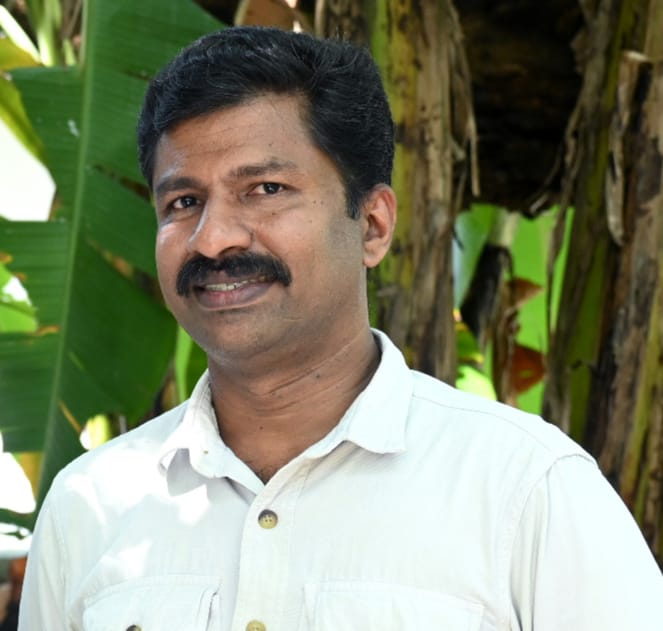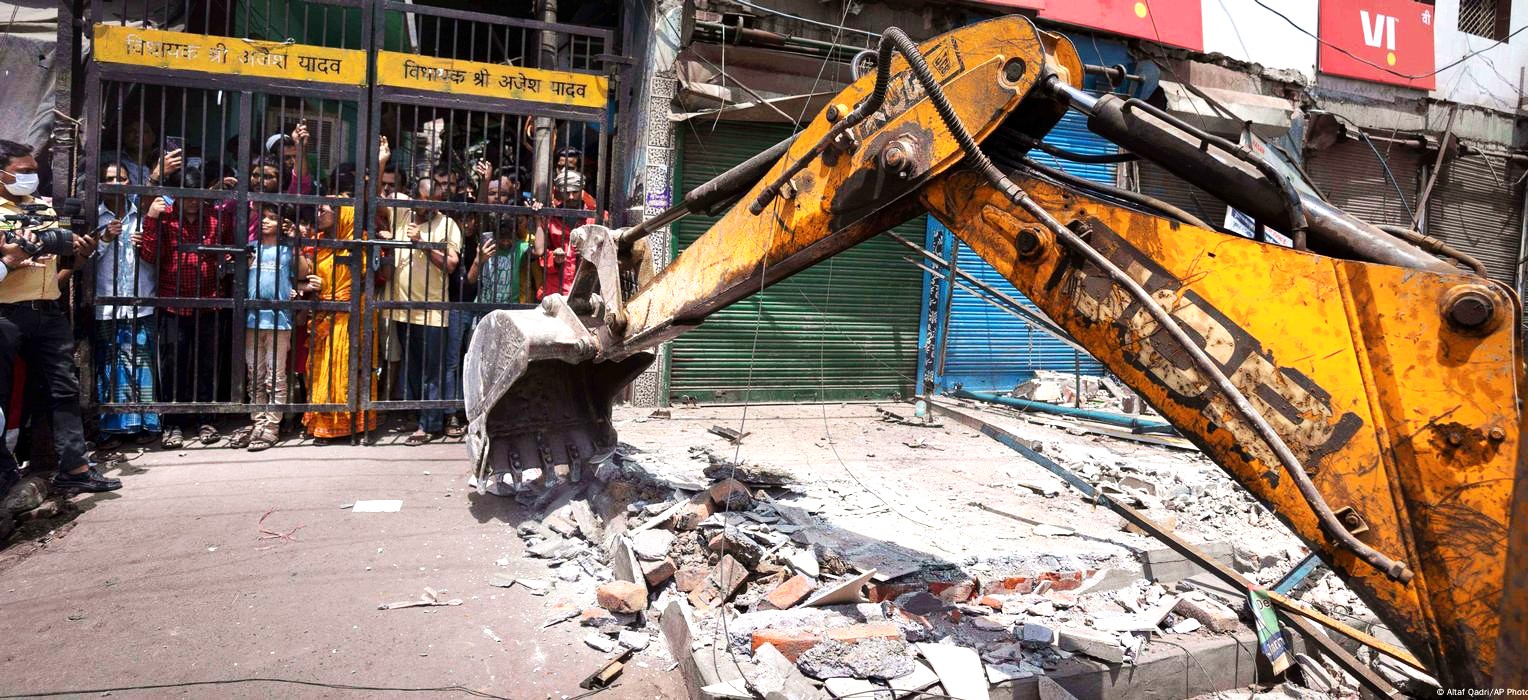
The Sangh Parivar’s Equality Claim Is a Dangerous Fiction
In this incisive conversation, social activist and former IAS officer Harsh Mander reflects on the deepening crisis of hatred and communal division in India, and the troubling inability of opposition forces to offer a coherent or courageous resistance. He reminds us that India’s secular ethos is not a rejection of faith, but a radical embrace—one that unites believers and non-believers in a shared moral and civic community. In this second part of the interview, Harsh Mander insists that only through unwavering commitment, a steadfast belief in human dignity, and collective resolve can the soul of the nation be reclaimed.
10 Minutes Read
Part Two
You have often spoken about the relentless spread of false propaganda in India. While citizens committed to democratic ideals as well as writers, activists, and others attempt to expose and resist it, these efforts seem insufficient to counter the Sangh Parivar’s narratives or to truly reach the broader public. What path lies ahead?
Indeed, many progressive thinkers and activists are striving to communicate alternative visions for a good society and a good state through various media platforms. However, their voices are routinely suppressed or sidelined by the algorithmic logic of social media, which privileges virality over veracity. In stark contrast, narratives steeped in hatred and division find instant traction and amplification. The popular reception of the film Chhava stands as a telling example.
What we desperately need is a robust and imaginative rethinking of our communication strategies—an ecosystem of counter-narratives capable of challenging the dominant discourse. For instance, how many Indians are aware that, in the aftermath of the Pahalgam terrorist attack, local Muslims offered shelter and emergency aid to stranded tourists? Or that during the tragic stampede at the Kumbh Mela, it was local mosques that opened their doors to the panicked and injured? These stories of solidarity rarely reach public knowledge and the national conscience.
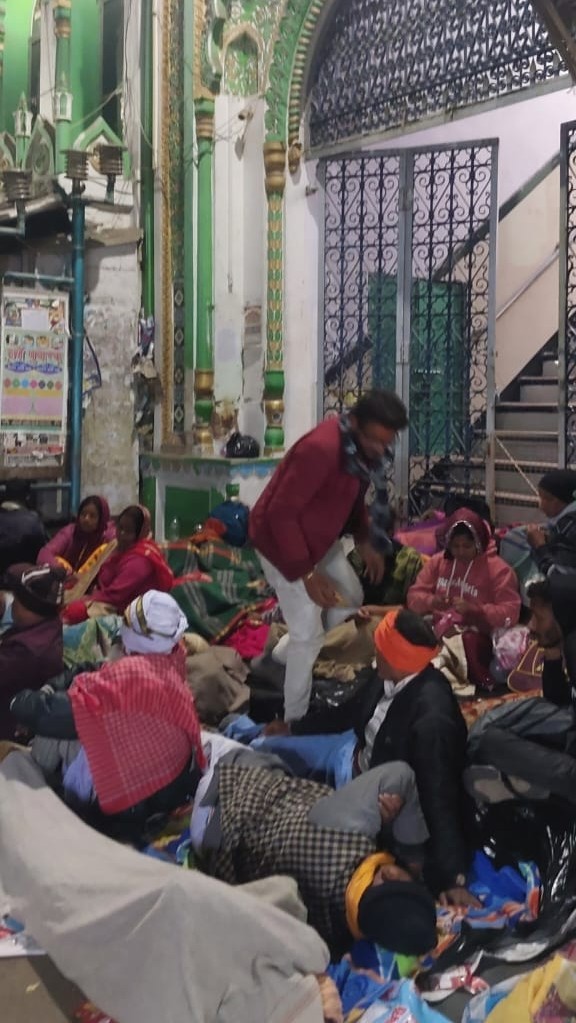
Is it not also true that progressive individuals and organisations have failed to match the consistency, discipline, and scale with which the Sangh Parivar has disseminated its ideas?
Absolutely. What we are witnessing today is the culmination of a century-long, methodically executed ideological project of the RSS and its affiliates. Following Gandhiji’s assassination, the RSS experienced a prolonged setback lasting nearly two decades. Their resurgence began only during the political opening created by Jayaprakash Narayan’s movement. Since then, they have advanced incrementally, with unwavering focus and intent.
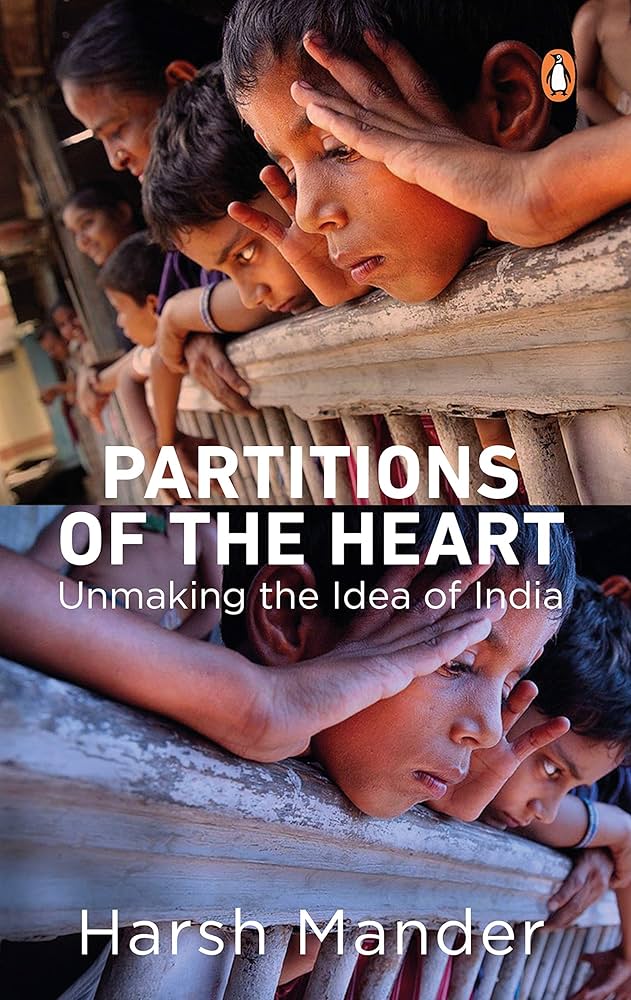
In my book Partitions of the Heart, I explore how this long-term strategy of the hate and divisive ideological project of the RSS has led to a rupture in the emotional and moral fabric of our society. We are now living amidst the consequences of those divided hearts—millions estranged by engineered mistrust and animosity. If we are to reclaim the republic, it will require immense dedication, deep sincerity, and an unshakeable faith in the inherent decency of the Indian people. Unfortunately, I do not believe the political opposition has yet risen to this existential challenge to the idea of India itself and its secular democratic constitution.
In retrospect, could we say that the resistance offered by liberal and democratic forces, including the Left, was ineffective? Did they fail to engage Indian society on its own cultural and religious terms?
Undeniably, those efforts have fallen short of what the moment demanded. Consider the numerous communal riots that occurred under Congress rule , and how often did the victims receive justice? It was, after all, a Congress government under whose watch the Babri Masjid was demolished. Time and again, parties professing secular ideals have betrayed them at critical junctures.
That said, it would be both intellectually lazy and politically misleading to draw an equivalence between the BJP and the Congress. The crisis within the Congress is one of moral and ideological erosion; the crisis with the RSS is foundational—their core ideology is steeped in exclusion and Hindu supremacy. What is deeply troubling today is that even within the opposition, we see a growing readiness to capitulate to majoritarianism, thereby diluting the constitutional values they claim to uphold.
Historically, large sections of the Hindu community aligned themselves with Gandhiji’s ideals of tolerance and religious fraternity. Given this legacy, it is unjust to suggest an inherent antagonism between Hindu society and liberal political forces like the Left.
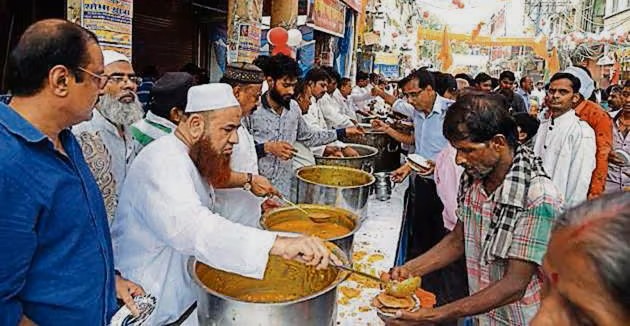
Indian history bears witness to a rich pluralism that has included not only devout religious adherents but also agnostics and atheists. Even today, a significant portion of the Hindu electorate rejects the exclusivist tenets of the BJP’s Hindutva ideology. However, having said this, we still cannot ignore the dangerous consolidation of Hindutva influence across key institutions—the media, the judiciary, universities, and the bureaucracy.
This should serve as a clarion call. We must awaken from complacency and act with urgency and clarity. In recent times, the Left parties seem to have responded with somewhat more consistency and clarity. Yes, there have been encouraging signs. We witnessed Brinda Karat vocally opposing the government’s use of bulldozers to demolish Muslim homes and reaching out to victims of lynching. We have seen the Left take strong and principled positions against mob lynchings. But more is needed.
I have revisited the parliamentary debates in 1991 when The Places of Worship Act was being debated, that mandated the preservation of the status quo at religious sites. Those discussions were marked by remarkable conviction where members across the political spectrum spoke in one voice in defence of secularism. Sadly, such moral clarity and conviction are rarely encountered in Parliament today. While many leaders may privately express concern about the assaults on secularism, few demonstrate the courage to say it publicly.
After Independence, India adopted a Constitution that enshrined progressive and modern values such as equality, justice, and fraternity. But was our society—steeped in superstition and caste discrimination—truly prepared to embrace these values in practice? Could this be the root of the crisis we face today?
I strongly disagree with that view. Indian secularism does not reject religious belief; rather, it strives to foster harmony between believers and non-believers. Mahatma Gandhi and Maulana Abul Kalam Azad were devoutly religious individuals, yet they were willing to risk their lives to safeguard the religious freedoms of others. In stark contrast, the two principal architects of religion-based nationalism—Vinayak Savarkar and Muhammad Ali Jinnah—were not practising believers. Hindutva has little to do with authentic religious faith. The same holds for Christian supporters of Donald Trump, whose politics bear little resemblance to Christian doctrine. Similarly, violent extremists in Sri Lanka or Myanmar have no meaningful connection to the teachings of the Buddha, or Islamists around the world with the teachings of the Quran and Prophet Mohammad.
In my view, the Left’s position that “religion itself is the problem” is a fundamental moral and political error. The real problem lies in the instrumentalization of religion for political gain through fostering hate and division. I have encountered many religious workers who embody secular and humanitarian values with greater sincerity than many who would describe themselves as secular individuals.
At the same time, isn’t it true that the Sangh Parivar has successfully drawn many ordinary citizens—especially Dalits and Adivasis—into the fold of Hindutva?
Yes, this is a crucial concern and one of the most significant failures of democratic forces in recent times. In the 2019 general elections, one in every three Dalits voted for the NDA. I suspect the numbers will be similar in 2024. We must seriously ask ourselves why Dalits would support a Hindutva formation that has never genuinely upheld the principle of equality.
Hindutva political actors have cultivated the illusion of inclusion, saying to marginalized groups, “You are also Hindu; come join us.” For communities historically denied dignity and recognition, this appeal naturally inspires hope. However, this inclusion is deceptive. Hindutva assures the Dalit belonging but not equality.
The support of marginalized communities is being mobilized to further campaigns not only against Muslims but also against Christians. Following the Pahalgam attack, the BJP popularized the toxic slogan, “They asked for religion, not caste.” Even when the Sangh attempts to unify caste groups under the Hindu fold, it scrupulously avoids the language of equality. A close examination of the RSS’s history makes this clear.
One reason Gita Press, a powerful mouthpiece of Hindutva ideology, turned against Gandhiji was not solely because of his belief in equal rights in India for Muslims and Christians. It was because Gandhiji insisted on the right of all people, regardless of caste, to enter temples. Hindutva does not recognize either equality or a life of dignity for all. Yet successive governments have also failed to grasp or genuinely engage with the aspirations of India’s marginalized populations.
In the past, Adivasi communities viewed the BJP as a party aligned with landlords and moneylenders. Today, the BJP has altered that perception by projecting itself as a force for moral reform—for example, by championing anti-liquor campaigns and education. The spread of Hindutva in tribal regions is undeniable. In Adivasi villages, symbols like Sabari and Hanuman are now promoted in place of Sita and Rama. These shifts in iconography and narrative appear to have been effective in communicating a sense of belonging to the Hindu fold, not in the status of the ruler, but that of the loyal subject.
Moreover, when it comes to surrendering tribal lands to corporate interests, there has been little distinction between Congress and BJP regimes. In Chhattisgarh, both parties followed the same trajectory. The harsh reality is that India’s marginalized communities are left with extremely limited political choices.
Shouldn’t Muslim communities in India also be viewed through a similar lens as historically marginalized, much like Dalits and Adivasis? Perhaps this is less evident in Kerala’s context. The Sachar Committee report pointed out the economic and social backwardness of Muslims. What insights do you have from your experience with Muslim communities?
When Advani undertook his Rath Yatra, the most common accusation against the Congress government was “Muslim appeasement.” Modi uses the same allegation today. It was under Manmohan Singh’s government that the Sachar Committee was appointed to investigate the real condition of Muslims. They found Muslims to be suffering from development deficits on par with the historically most deprived communities – the Dalits and Adivasis. But even after this finding, the Congress-led government didn’t do enough for the community.
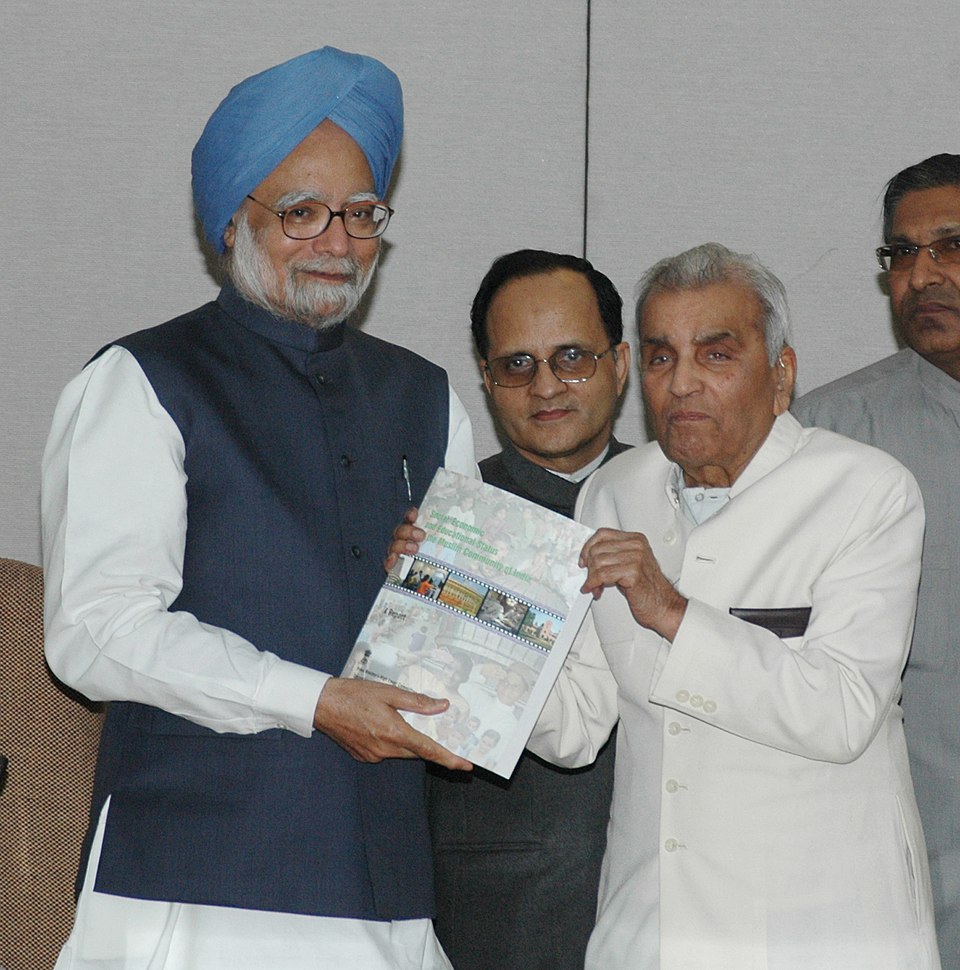
The false charge of appeasement quietened down for a while, but it has now resurfaced with full force and ferocity. In his last Red Fort address before the 2024 elections, Modi named three major threats to the country—the third being the so-called “Muslim appeasement.” The central government has since cut many social welfare schemes that once benefited Muslims. This has further alienated them from any real opportunities for advancement.
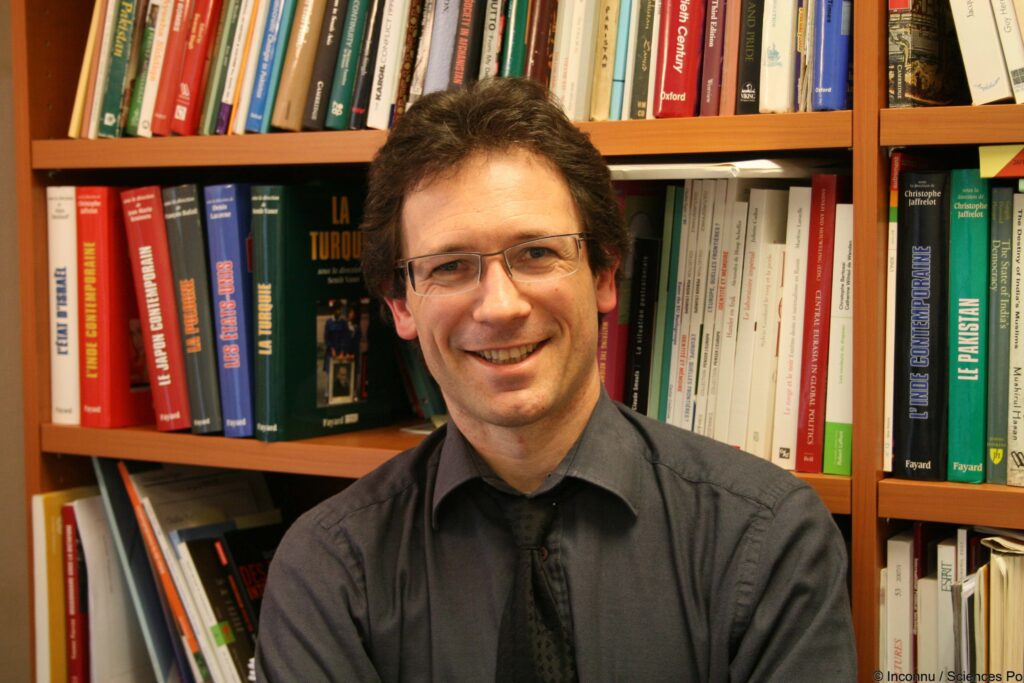
French political scientist Christophe Jaffrelot has noted that the only community to experience since Independence a decadal decline in higher education enrolment over the past decade is the Muslim community. We must examine why. Perhaps it’s due to fear or a growing loss of hope. Moreover, the government has done very little development work in areas with a large Muslim population. Mewat (now called Nuh) district in Haryana, which borders the glittering Gurugram, which is 80% Muslim, has been identified by NITI Aayog as the most backward district in the country. In today’s India, even offering prayers is increasingly treated as a criminal act.
The Bharat Jodo Yatra led by Rahul Gandhi received widespread public support and generated political momentum. Yet, this didn’t translate into significant electoral gains. Similarly, the Congress was unable to replicate its Karnataka victory in other states. Isn’t this a political failure of the Congress party?
We are at a crucial juncture in the life of the Indian Republic. At such a time, the transformation of the political opposition into social movements for religious tolerance and plurialism and social and economic justice is absolutely necessary—for the Congress, and so too the Left and the regional parties. The Bharat Jodo Yatra was significant because it was not linked to an election but because it was a moral and political journey led by a senior political leader. It marked Rahul Gandhi’s growth, maturity, and sincerity as a political figure. The public support it drew indicates that people are yearning for an alternative to the politics of hatred and division. The Yatra should have marked the beginning of a broader political movement. I do not see this happening. If the Congress as the largest national opposition party with the legacy of the freedom struggle fails in this role, removing the BJP from power will become extremely difficult.
One of Rahul Gandhi’s central shortcomings is his silence on the plight of Muslims. He needs to be present when mob lynchings occur: vocal in his opposition to hate violence and in open solidarity with the victims. The BJP is destroying India’s national unity and democratic fabric by targeting Muslims. In state elections in Madhya Pradesh, Chhattisgarh, and Rajasthan, the Congress relied heavily on a strategy of “soft Hindutva.” They lost in all those states. However, they won in Telangana and Karnataka, where they stood firm on secular values and minority rights.
The lesson is clear: even if they don’t win elections, they must not compromise on their principles. At stake is India’s constitutional democracy. A soft Hindutva line won’t help them. If a voter truly supports Hindutva, they will vote for the BJP—the original. Why would they vote for a counterfeit version like Congress? Worse, the Congress risks alienating progressive voters by doing so. They must come to terms with this reality.
How would you compare Modi and Rahul Gandhi?
Rahul Gandhi engages with ordinary people with genuine sincerity. Modi, by contrast, comes across as entirely performative. His speeches are filled with hatred and disdain. Every human being has both a good and an evil side. Gandhiji connected with the good in us. That is what the best kind of political leader does. Modi, on the other hand, appeals to the evil side in us.
The Modi government has filed several cases against you. What is the status of those cases?
If you look at the cases filed against me, you’d think I’ve committed every possible heinous crime—hate speech, sedition, inciting the Delhi riots, money laundering. Multiple agencies, including the ED, police, CBI, and the Income Tax Department, are investigating the charges. They haven’t jailed me yet. But regardless of what they try, my conviction remains unchanged: I will follow my conscience and speak up for justice.
Cover Image: Paramilitary forces and bulldozers moving into Jahangirpuri — a low-income, predominantly Muslim neighborhood in the capital’s northwest — and razed several shops as well as the walls around a mosque. Courtesy :https://www.dw.com/
